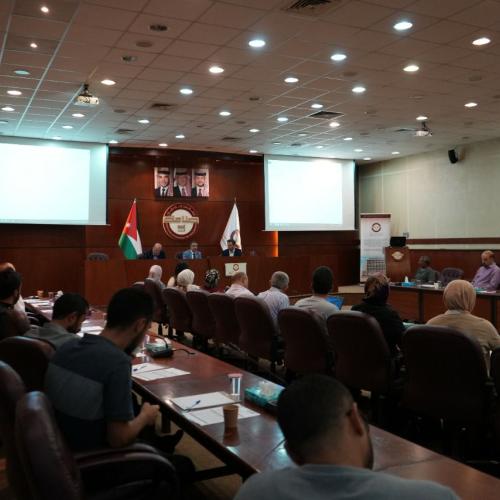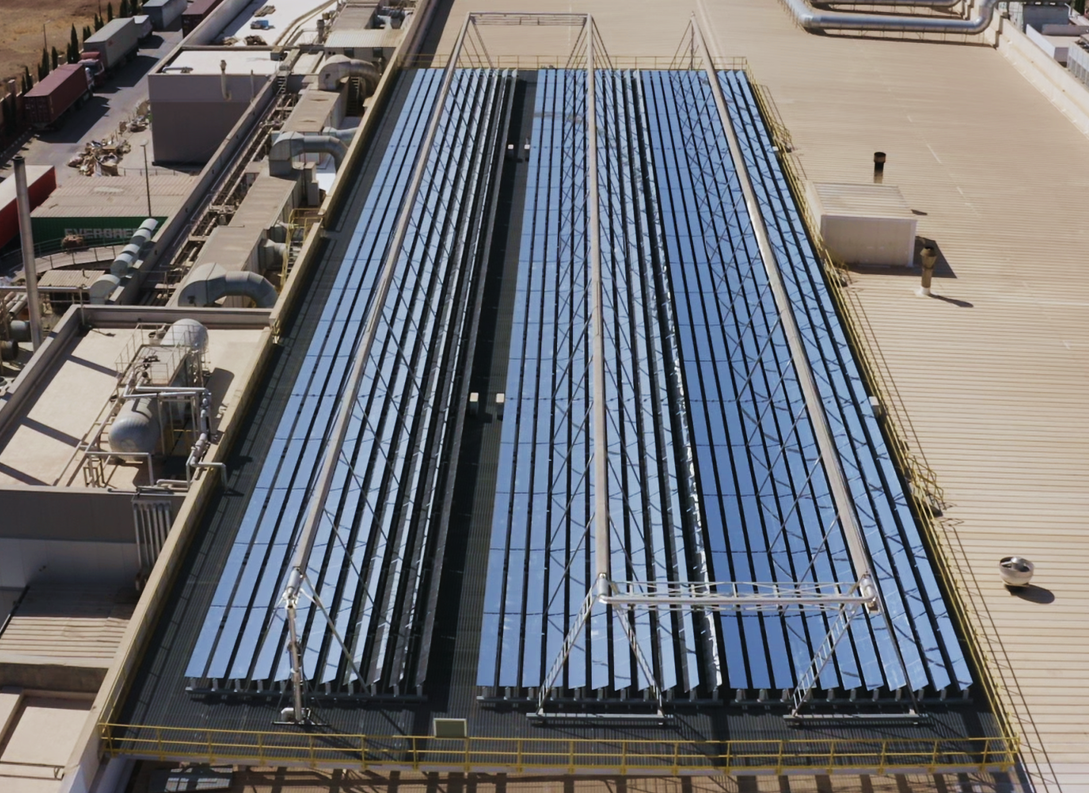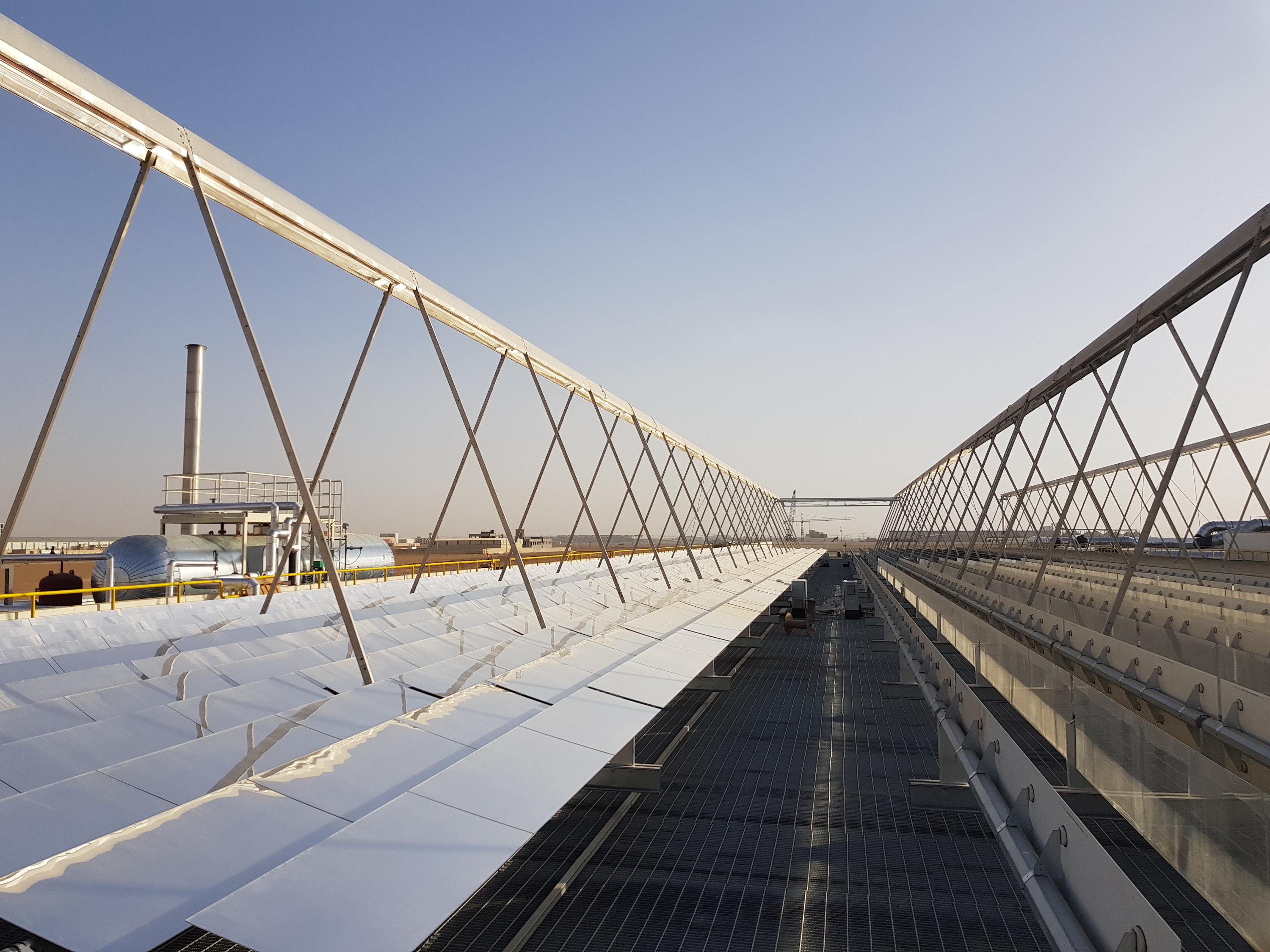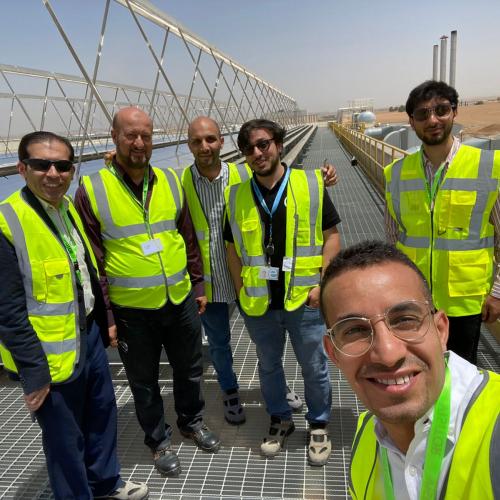JOSSI: Solar Process Steam Workshop in Amman

Coordinator: Industrial Solar GmbH
Contact person: Leonard Hahn
Address: Basler Str. 115, 79115, Freiburg
Phone: +49 (0) 761 76711124
Email: leonard.hahn(at)industrial-solar.de
Project partners in Germany:
Project partners in Jordan:
In Jordan, fossil fuels are expensive but there is a high level of solar radiation. Solar energy therefore offers enormous potential in terms of a sustainable, social and environmentally-friendly energy supply. The "Jordan Optimizes Solar Steam for Industry (JOSSI)" research project explores the application of solar thermal energy to generate industrial process steam and aims to accelerate the application using intelligent process monitoring to reduce costs and increase yields.
The overall objective of the project partners is to support the dissemination of solar process steam utilisation in industrial processes through research and development (R&D) work and to thereby promote the broad market introduction of this technology, especially in the partner country of Jordan. Jordan was selected because of its great potential and its existing solar process steam generation facilities. Technically, the focus here is on the analysis of flows within the collector, which are to be investigated using high-precision measurement methods. In addition, digital data evaluation and plant monitoring systems are to be optimised. Long-term reports on system performance can record the direct impact of various improvements to the facility, data evaluation and predictive maintenance. Other important goals are the building up of know-how in the industrial and academic sectors, the supporting of the project development for further plants and the promotion of awareness of solar process steam supply.

Most demand for industrial process heat is for temperatures below 400°C. When sufficient direct solar radiation is available, as in Jordan, linear concentrating collectors can cover a large part of the industrial heat demand. This is especially true for the food, textile, and chemical industries, which have been repeatedly identified as promising for "Solar Heat for Industrial Processes" (SHIP). In Jordan, SHIP systems have already been built, but further expansion is still being held back by lack of awareness in the industry, high system costs (due to small volumes), residual risks at the end-user due to insufficient experience on yields and limited capacity at solution providers and end-users. Within the framework of JOSSI, targeted work is to be undertaken on these points. By analysing the flow patterns, the control strategy can be improved at an existing facility. Subsequently, plant performance can be recorded and evaluated with long-term operating data, which facilitates the financing of future facilities and reduces their revenue risks. Measurement, data evaluation and interpretation are specifically improved at lower costs.

The project partners expect both improvements to the existing system, cheaper measurement technology, better data acquisition, evaluation and presentation and knowledge transfer in the academic and industrial environment. The consortium consists of Jordanian and German partners who are in close contact. Universities (University of Jordan, Middle Eastern University, National University College of Technology), private companies (Japan Tobacco International, Najjar Rawas Company), public institutions (Amman Chamber of Industry), research institutions (German Aerospace Centre, Helmholtz-Zentrum Dresden-Rossendorf) and the project coordinator (Industrial Solar GmbH) are working together to achieve the goals. In work packages 1 to 3, HZDR, NRC and ISG are involved in the technical implementation of the flow measurements on the collector at JTI. DLR also has a technical focus in these work packages, in the area of planning and modelling the facilities. The Jordanian universities will provide both technical and scientific support and thereby aim to improve their teaching through concrete research projects. Technical and scientific results will flow into work package 4. Universities will play a key role here in disseminating knowledge about solar process heat in the academic sector and linking students with German research insights. With this in mind, work package 5 will address knowledge dissemination in industry and ACI will be particularly involved in this. A broad knowledge of solar process heat will have a positive impact on the use of renewable energy in Jordan, promote the addition of climate-smart technologies and reduce resource dependence on foreign countries.
The JOSSI research project directly addresses the reduction of CO2 and other pollutant emissions through the use of solar heat for industrial applications. The decarbonisation of industrial processes is an enormously important goal in terms of slowing down climate change as it is responsible for almost 20% of global energy demand. As an established technology, solar thermal energy can play a major role here, especially in sunny regions.
In doing so, JOSSI supports six important "Sustainable Development Goals":

